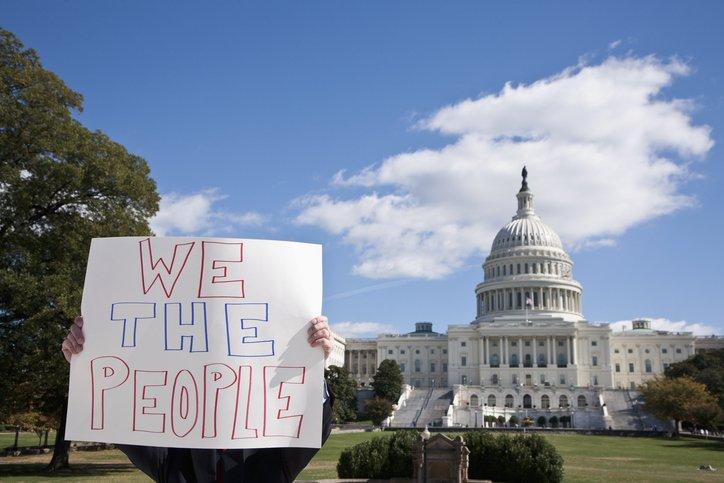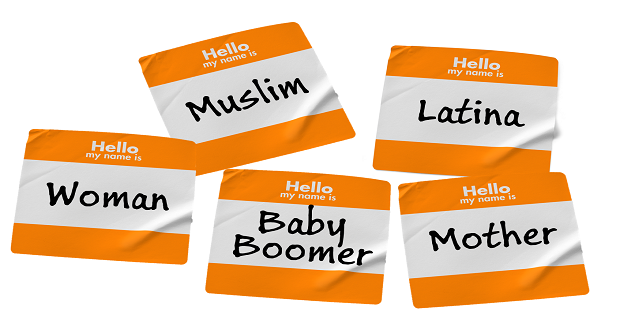
While I am not a lawyer or legal expert, we welcome input from those who have expertise in this area. Please share thoughts in the comments.
While not explicitly mentioning diversity, equity, inclusion, and justice (DEIJ), the U.S. Constitution and the Bill of Rights provide foundational principles that can guide corporations in implementing DEIJ programs. Recent research and legal developments further highlight the importance of aligning these programs with constitutional principles to ensure effectiveness and legal compliance.
Constitutional and Legal Framework for DEIJ
- Preamble of the Constitution and DEIJ: The Constitution’s preamble, advocating for the general welfare and blessings of liberty, can be interpreted by companies as a call to create an equitable and inclusive workplace. This interpretation aligns with corporate goals of ensuring all employees can contribute and succeed, irrespective of their backgrounds.
Organizations can expand employee wellness programs to include initiatives designed to identify, investigate, and address the physical and psychological impacts of workplace discrimination. Such programs would align with the preamble’s goal of promoting general welfare by ensuring a work environment free from discriminatory practices, directly contributing to employees’ psychological and emotional health.
This approach could involve confidential surveys, counseling services, and training sessions focused on recognizing and dealing with discrimination. Moreover, companies could establish a dedicated task force or committee to address reported instances of discrimination, ensuring that all employees feel heard, supported, and valued, irrespective of their background or identity.
- Privileges and Immunities Clause and Corporate Equity: Article IV, Section 2, of the Constitution inspires equitable treatment of all employees, advocating against discrimination based on geographic or state origin.
Companies might establish national diversity councils to align with the spirit of the Privileges and Immunities Clause. These councils ensure employees from all locations have equal representation and access to opportunities. To further enhance these efforts, companies can incorporate comprehensive equity audits.
Equity audits combine quantitative and qualitative data analysis to give a complete picture of the organizational culture through a justice lens. This audit interrogates systems and practices focusing on dominant culture and racial equity. It helps in understanding how the actual functioning of the system compares to expectations and perceptions. Incorporating Equity Audits empowers national diversity councils to make data-driven decisions, ensuring fairness and unity across the organization.
- First Amendment Rights and Workplace Inclusivity: The First Amendment’s emphasis on freedoms of religion, expression, and assembly can guide corporations to respect and value diverse religious and cultural practices, promoting an inclusive environment.
In line with the First Amendment, organizations can offer bias awareness training to all employees. This training helps people recognize and mitigate their natural biases, encouraging a culture where diverse thoughts and expressions are valued and respected.
- Fourth Amendment and Privacy in the Workplace: The Fourth Amendment’s protection against unreasonable searches and seizures can be extended to corporate privacy policies, underlining the importance of respecting employee privacy.
A company could establish safe and confidential channels for employees to report discrimination, harassment, or any injustice they face or witness in the workplace. This action aligns with the Fourth Amendment’s spirit of protecting individual rights and privacy. By ensuring that employees can safely report issues without fear of reprisal or breach of confidentiality, the organization fosters an environment where all employees, particularly those from marginalized groups, feel heard and protected. This safe reporting mechanism is crucial in maintaining an equitable and just workplace.
- Due Process in Employment Practices: The Fifth and Fourteenth Amendments emphasize due process, which corporations can interpret as a need for transparent and fair employment practices.
Anchoring to the due process principles of the Fifth and Fourteenth Amendments, an organization could adopt a strategic approach to equity through a policies and procedures analysis. This methodical review ensures that performance evaluation systems are fair and transparent.
Policy analysis involves a deep dive into the existing performance evaluation policies to identify areas where unconscious biases may reside, or the procedures may not align with the organization’s commitment to equity and justice. The review process includes annotation, recommendations for improvement within company policies, and a critical examination of current practices. The outcome of a comprehensive policies and procedures analysis is a set of refined practices that ensure all employees are evaluated fairly.
- Equal Protection Clause and Anti-Discrimination Policies: The Fourteenth Amendment’s Equal Protection Clause is crucial for developing corporate anti-discrimination policies and ensuring equal employee treatment and opportunities.
A company might adopt inclusive recruitment strategies in the spirit of the Equal Protection Clause. This approach could involve using diverse hiring panels, implementing anonymized recruitment processes to prevent unconscious biases, and actively seeking candidates from underrepresented groups to ensure a diverse and equitable workforce.
Tips for DEIJ Implementation in Today’s World:
- Legal Compliance Review: Ensure DEIJ initiatives comply with current laws and regulations, particularly regarding equal opportunity and non-discrimination.
- Balanced Goal Setting: Set DEIJ goals informed by realistic assessments of the company’s capabilities and legal landscape, avoiding potential “reverse discrimination” scenarios.
- Inclusive Policy Development and Analysis: Develop and regularly analyze policies that respect diversity in all forms, including cultural, religious, and gender diversity, in line with First Amendment principles.
- Transparent Employment Practices: Establish transparent processes for hiring, promotion, and disciplinary actions, reflecting the constitutional principle of due process.
- Respect Privacy: Uphold privacy and personal space in the workplace in alignment with the Fourth Amendment.
- Continuous Legal Consultation and Equity Audits: Regularly consult with legal experts and conduct equity audits to navigate the evolving legal landscape surrounding DEIJ.
- Employee Engagement and Cultural Competence: Involve employees in developing and implementing DEIJ initiatives and provide cultural competence training to address real needs and perceptions.
- Regular Program Assessment with Actionable Insights: Continuously assess and adjust DEIJ initiatives to ensure they remain effective, inclusive, and compliant with legal standards, using insights from data to guide changes.
- Sponsorship and Mentorship: Establish and support sponsorship and mentorship programs for underrepresented employees to facilitate career growth and leadership opportunities.
- Strategy Development and Implementation for DEIJ: Develop a comprehensive strategy that aligns with legal compliance and advances DEIJ in ways beneficial to all stakeholders.
Conclusion
The U.S. Constitution and the Bill of Rights, though not explicitly mentioning DEIJ, provide a valuable framework for corporations to develop and implement DEIJ programs. Aligning these programs with constitutional principles and legal requirements ensures their effectiveness and compliance with the evolving legal landscape.
Supporting Research
- A Supreme Court decision highlighted the need for legal compliance in DEI programs, emphasizing that while different statutes govern affirmative action in education and corporate DEI initiatives, the principles of equity and inclusion remain vital.
- Legal risks in DEI programs, as outlined by Reuters, include potential reverse discrimination claims, necessitating a balanced and legally sound approach to DEI initiatives.
- A Harvard study revealed that traditional demographic diversity metrics are weakly correlated with actual DEI success, suggesting the need for more targeted initiatives to enhance DEI in the workplace.


















